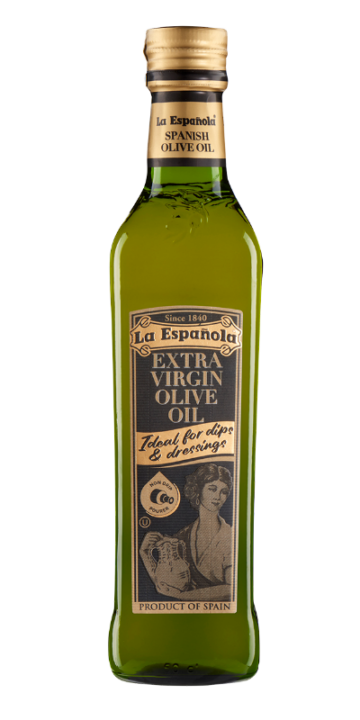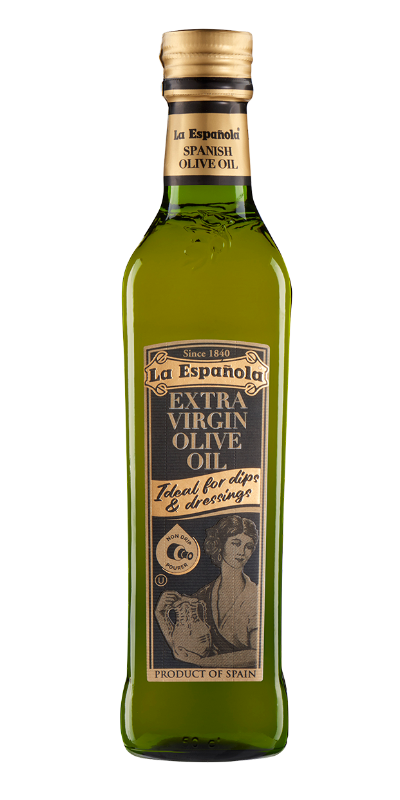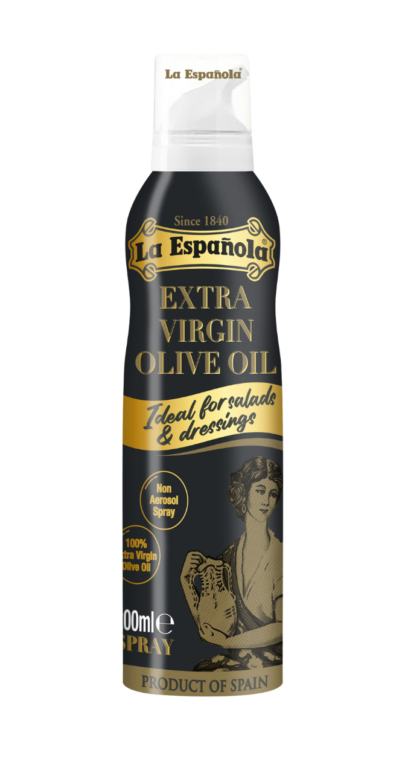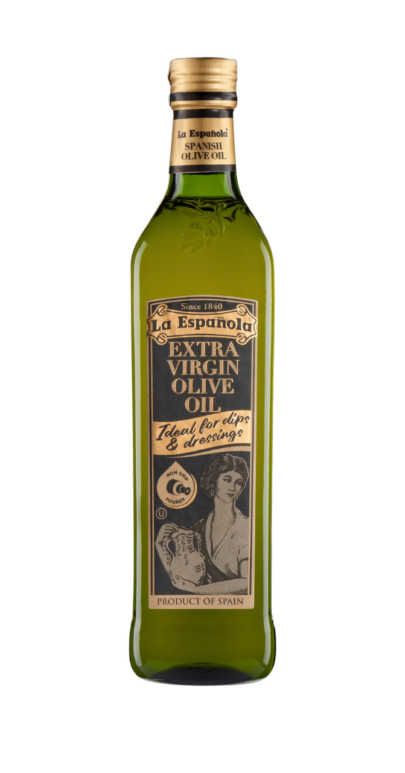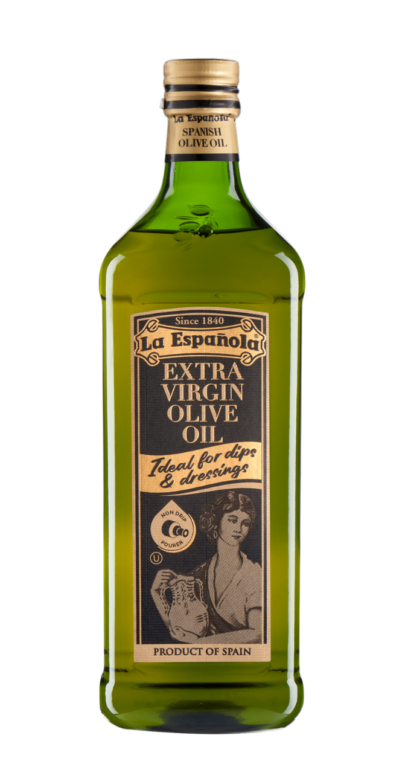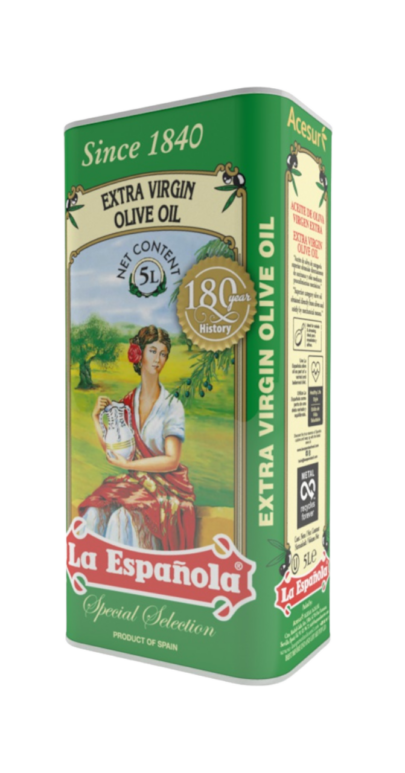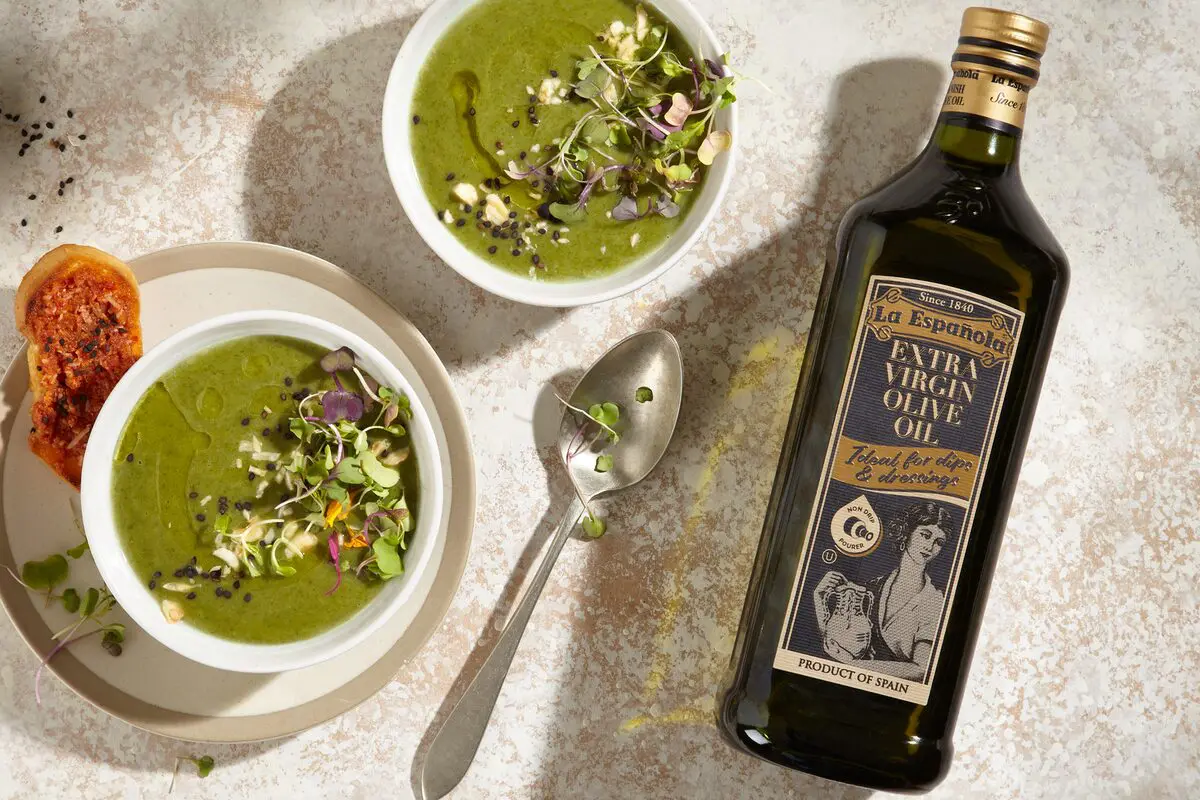What is extra virgin olive oil?
The legal definition is superior category olive oil obtained directly from olives and only by mechanical means.
Extra Virgin Olive Oil refers to the highest grade of olive oil, made using a method called cold-pressing and without the use of any heat or chemicals.
This process preserves the oil’s natural flavour, aroma, and health benefits including antioxidants and healthy fats.
To qualify as “extra virgin,” the oil must meet strict standards for taste and acidity. It must be free from defects and have an acidity level of less than 0.8%.
The result is a premium-quality olive oil with exceptional taste and purity, offering a true expression of the olive’s character and a delicious way to elevate everyday cooking.
Extra Virgin vs Olive Oil
The key difference lies in how the oil is made and its quality. Extra Virgin Olive Oil is the highest grade — it’s made from the first cold-pressing of fresh olives, without any heat or chemicals. This keeps its natural flavour, aroma, and antioxidants intact, giving it a fruity taste with a peppery finish. Olive Oil is a blend of refined olive oil and a small amount of extra virgin which is added for flavour. The refining process removes imperfections but also strips away much of the natural taste and nutrients. Olive Oil has a milder flavour and a higher smoke point, making it more suitable for cooking.
Is Extra Virgin Olive Oil Good for you?
Yes, Extra Virgin Olive Oil is one of the healthiest oils you can choose. It’s packed with monounsaturated fats, which are heart-healthy and can help lower cholesterol levels. Rich in antioxidants like vitamin E and polyphenols, it helps fight inflammation and protect your body from oxidative stress. Regular consumption has been linked to improved heart health, better blood sugar control, and anti-inflammatory effects. What’s more, Extra Virgin Olive Oil contains only unsaturated fats, making it an excellent choice for overall wellness. Studies have also shown it can reduce blood pressure and improve cardiovascular health. The benefits of Extra Virgin Olive Oil are truly manifold, making it a natural source of healthy fats and a great addition to your diet.
Extra Virgin Olive Oil Smoke Point
The term ‘Smoke Point’ is the temperature at which olive oil will begin to smoke during when it is heated.
The smoke point for Extra Virgin Olive Oil is typically around 160°C, meaning that when heated past this temperature, the oil begins to break down and lose its beneficial properties. EVOO is rich in antioxidants, polyphenols, and healthy fats, all of which are best preserved when the oil is used cold or at low temperatures. To maintain the full range of health benefits, we recommend using Extra Virgin Olive Oil primarily for cold uses—such as in dressings, dips, or drizzling over finished dishes—where its vibrant flavour and nutrients shine.
Can you fry with extra virgin olive oil?
Yes, you can fry with Extra Virgin Olive Oil, but it’s best suited for light frying or low to medium heat cooking. Since its smoke point is around 160°C, it may not be the best choice for deep frying or cooking at very high temperatures. When heated past its smoke point, the oil begins to break down and smoke, losing some of its beneficial antioxidants and flavour. However, it can be excellent for sautéing and pan-frying at low temperatures. For higher-heat cooking, it’s better to use a more refined olive oil which is more stable and with a higher smoke point.
What to make with extra virgin olive oil
When it comes to using La Española Extra Virgin Olive Oil in your dishes, the possibilities are endless! To inspire your culinary creations, we’ve put together a list of its most popular uses in cooking.
Salad Recipes: No salad is complete without a splash of La Española Extra Virgin Olive Oil. Not only does it enhance the flavour profile with its fruity notes and unique texture, but it also helps to bring together the classic ingredients of a salad. If you haven’t yet tried extra virgin olive oil as a dressing, make the switch today and experience the difference!
Sautéing: For finesse and depth of flavour, choose extra virgin olive oil for your sautéed dishes. Its rich flavour adds a luxurious touch, transforming even small quantities into a powerful ingredient that elevates the natural tastes of the other components.
Soups: In Mediterranean cuisine, a drizzle of extra virgin olive oil is often used to finish soups, providing a silky texture and a fruity depth of flavour.
With Bread: One of the best ways to truly savour the unique flavour of extra virgin olive oil is by pairing it with high-quality bread. It’s no surprise that oil and bread are often the first items served in homes and restaurants throughout the Mediterranean.

